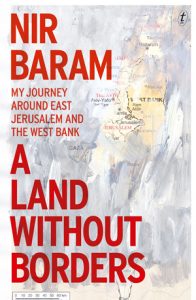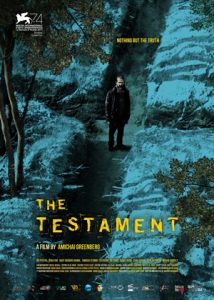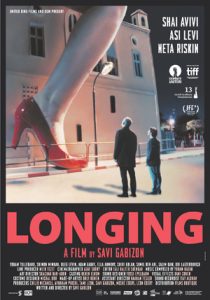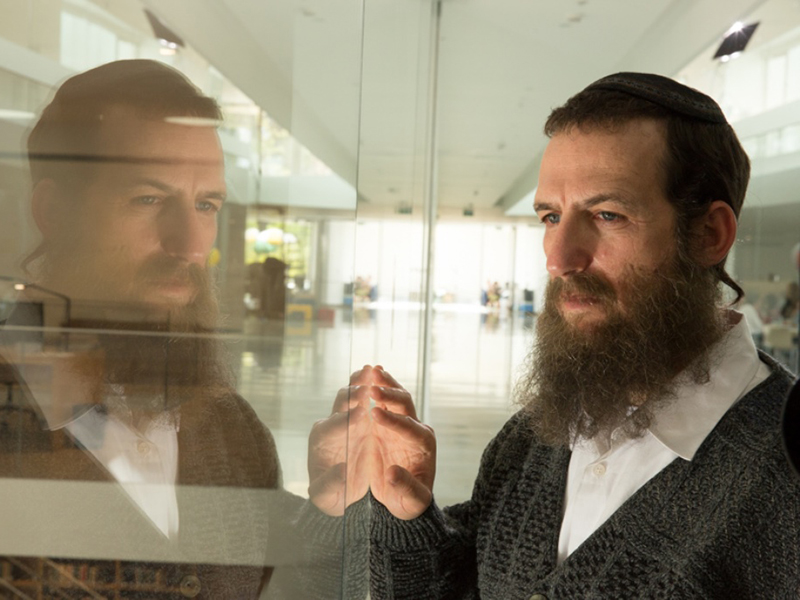Fifteen of the best new Israeli movies – ranging from dramas, to comedies, to thrillers, to documentaries – will be screened at the Cineplex Forum in Montreal from May 6-17, with both English and French subtitles.
This is the 13th edition of the Montreal Israeli Film Festival (MIFF), which is put on by the Communauté Sépharade Unifiée du Québec. Once directed primarily toward French-speaking Jewish and Israeli audiences, MIFF has been reaching out to anglophones and the general public in the past couple of years.
All of the films are from 2017, with one late 2016 exception, and all are Montreal premieres. Most have won prizes in Israel or abroad.
The MIFF committee, which is co-chaired by Chantal and Gérard Buzaglo, screened about 60 movies before making the selections.
READ: FILM DOCUMENTS MASSACRE OF JEWS IN LITHUANIAN SHTETL
Chantal Buzaglo explained that the committee looks for quality films in a mix of genres, especially those that depict real-life situations with which audiences here can identify. “We want to give a different image of Israel than most people have, but a realistic one,” she said.
That includes humour because Israelis, like everyone else, like to laugh, she added.
Last year’s edition sold 4,550 tickets to a total of 13 films.
One of the most hard-hitting in this year’s lineup is the documentary, My Afterlife, by Emmanuel Rosen. In 2010, Lilach Shem Tov’s ex-husband murdered their three children, in an incident that shocked all of Israel. After a two-year trial, he was sentenced to three consecutive life sentences. The film follows Lilach Shem Tov’s struggle to carry on, as she journeys from despair, to finding meaning in being an advocate for victims of domestic violence. She also becomes a mother again.
 The two other documentaries tackle the Israeli-Palestinian conflict from different angles. Nir Baram’s A Land Without Borders is a different take on the occupation, while Muhi brings to light the story of a Palestinian boy from Gaza who has been in an Israeli hospital for seven years, since he was an infant, and cannot return home.
The two other documentaries tackle the Israeli-Palestinian conflict from different angles. Nir Baram’s A Land Without Borders is a different take on the occupation, while Muhi brings to light the story of a Palestinian boy from Gaza who has been in an Israeli hospital for seven years, since he was an infant, and cannot return home.
Two of the entries in the festival’s competition concern LGBTQ people. The Cakemaker, directed by Ofir Raul Graizer, is about a German baker who has an affair with a married Israeli man. After he vanishes, the baker goes to Israel, only to find out that his lover was killed in car accident.
He goes to work for the unsuspecting widow, who owns a café, and a touching relationship develops between the two over their shared grief.
Montana is the story of a young woman’s affair with a married teacher. Noa Biron’s portrayal earned her the best actress award at the Haifa Film Festival.
 Among the other films in the hunt for a Lys d’Or (best film, actor, actress, director or screenplay) are The Testament, in which a religious Holocaust researcher uncovers a massacre of Jews in Austria that casts doubts on his mother’s identity. It won the Prix du Public prize at both the Paris and Nice Israeli film festivals.
Among the other films in the hunt for a Lys d’Or (best film, actor, actress, director or screenplay) are The Testament, in which a religious Holocaust researcher uncovers a massacre of Jews in Austria that casts doubts on his mother’s identity. It won the Prix du Public prize at both the Paris and Nice Israeli film festivals.
The rest of the contenders include: Doubtful, which is about a sensitive man who is sentenced to community service with youth on parole in Be’er Sheva, after a drunk-driving conviction (this won best film at the Jerusalem Film Festival); Shelter, which is veteran director Eran Riklis’s suspenseful tale about the bond that develops between a female Israeli special agent assigned to protect a female Hezbollah informant who’s recovering from face-altering plastic surgery; Maktub, a warm-hearted comedy about two criminals who decide to reform themselves after being the sole survivors of a terrorist attack on a Jerusalem restaurant; Outdoors, a look at a young couple’s relationship problems after they leave the city and build their dream home in Galilee; Scaffolding, which portrays a teenager who’s torn between his father’s expectation that he will follow him in the construction business and a teacher’s urging that he aim for something bigger; and Longing, which sees a middle-aged man’s life turned upside down when he not only learns that he had a son he never knew existed, but that the son has recently died.
 Longing was nominated for 13 Israeli Academy Awards, including best film. The Buzaglos are hoping that the lead actor, Shai Avivi, will attend that screening.
Longing was nominated for 13 Israeli Academy Awards, including best film. The Buzaglos are hoping that the lead actor, Shai Avivi, will attend that screening.
Short films will be shown before each main feature, including two by Israeli students Einat Gaulan and Boris Haimov, who won the Jerusalem Foundation Film Prize, which is sponsoring their trip to the MIFF and the Toronto Jewish Film Festival.
The seven-member jury’s president is Roger Frappier, who has produced over 50 films in the past four decades. His latest production is François Girard’s Hochelaga, Land of Souls, Canada’s submission to the 2018 Oscars’ Best Foreign Language Film category.
MIFF’s honorary committee is headed by another well-known Quebecer, former premier Bernard Landry. Federalists are not left out: the committee also includes Conservative MP Steven Blaney, Steve Foster, president of the LGBT Chamber of Commerce of Quebec, and Frantz Voltaire, president of the Haitian, Caribbean and Afro-Canadian Information Centre. Air Transat, which resumes flying to Israel later in May, is the corporate partner.
